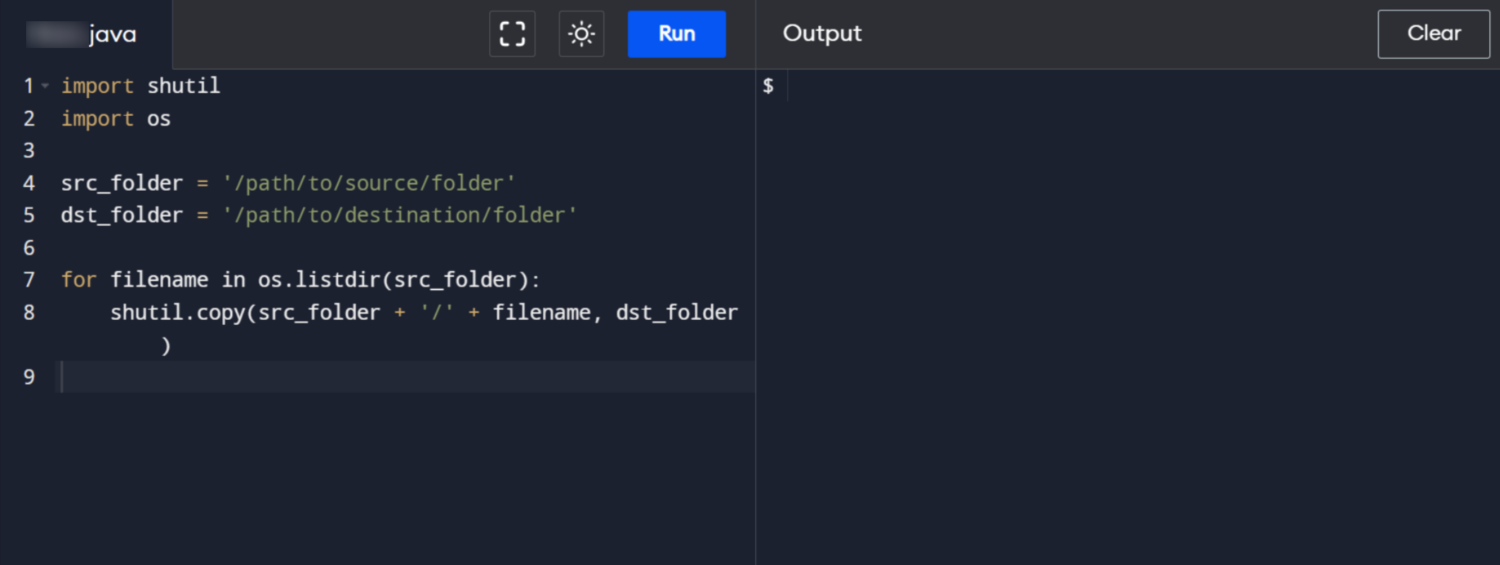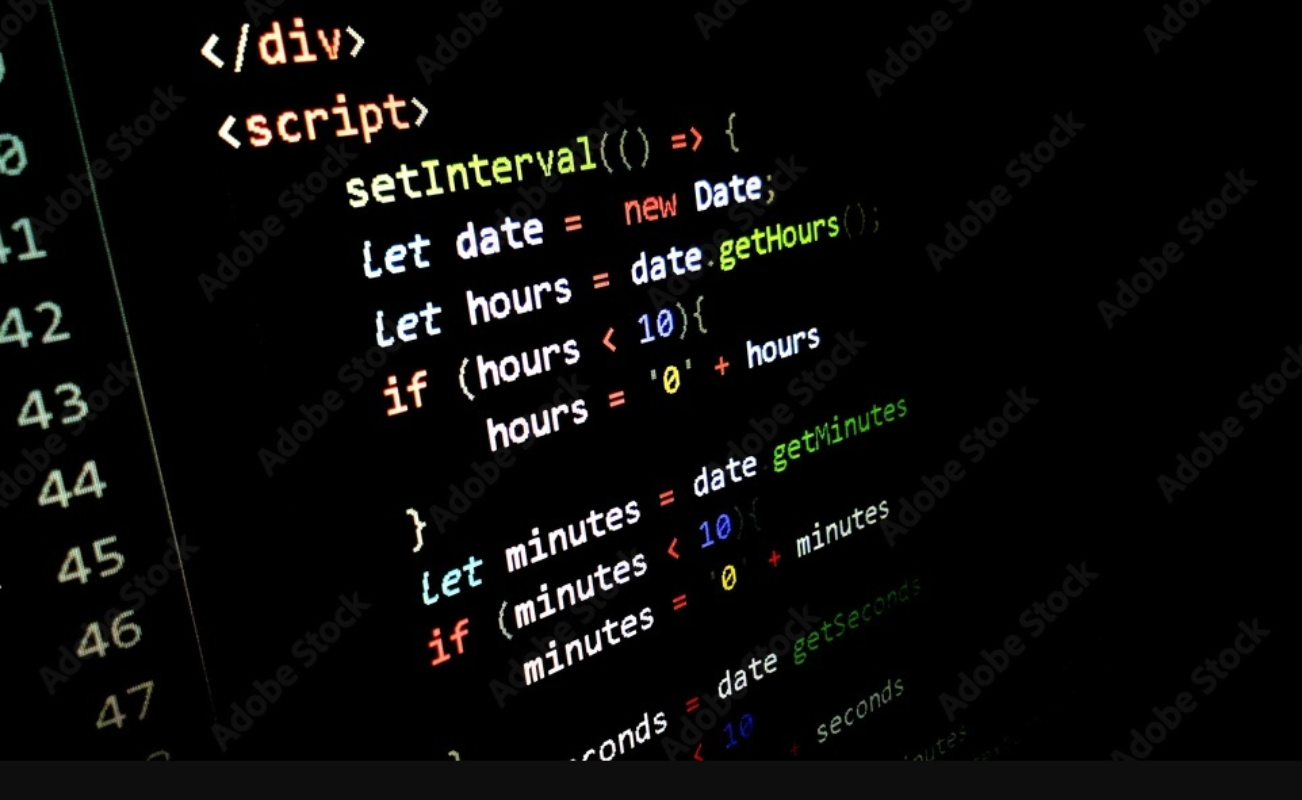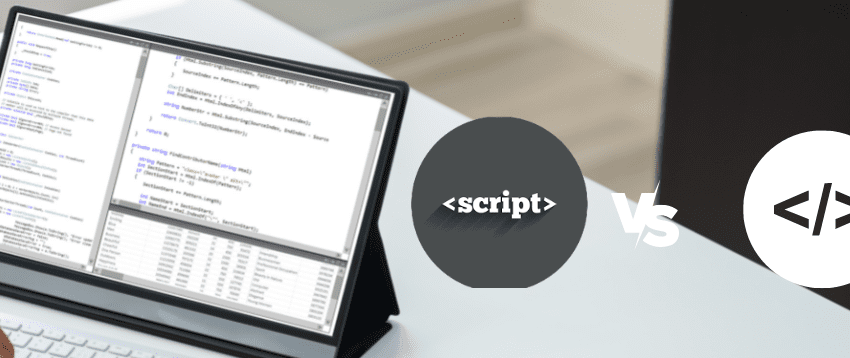Coding and scripting are phrases that are often used indiscriminately in today’s digital environment. Despite the similarities, they have unique distinctions that differentiate them.
It’s crucial to know the difference between coding and scripting, whether you’re thinking about a career in software development or have a passion for technology.
Coding is the process of creating sophisticated software applications by writing code from scratch. For that, you need to execute programming languages such as Java or Python. On the other hand, scripting involves creating scripts or small programs. It automates the basic operations and extends the existing application.
This article will explain the difference between coding and scripting, whether you are a novice or a seasoned programmer. It will also assist you in determining which is most suited to your requirements. So let’s grab a cup of coffee and get ready to dive deep into the realm of coding and scripting.
What is Coding?

The process of creating instructions in a computer language that a machine can comprehend and execute is referred to as coding. It is an important part of software development and is used to produce anything from tiny mobile applications to sophisticated software systems. Also, it transforms an idea into a working program that can be executed on a computer.
A programmer produces code in a programming language such as python, java, or C++. The next step is to build, test, and debug the software using various tools and techniques.
Some programming languages are specifically developed for particular objectives, such as web development or game development. In comparison, others are more versatile that you can implement for a range of applications.
let’s say you want to create a simple program that captures the average of three values. The code in Python may seem like the following:

The function named “average” is defined in the example above, which accepts three arguments: “a”, “b”, and “c.” The function returns the average value of those three integers. The remaining program then calculates the average based on user input and displays the outcome.
Benefits of Coding
Coding is a demanding and complicated activity requiring patience, perseverance, and a desire to explore new ideas. However, with training and expertise, coders can produce strong practical applications that simplify our lives and overcome challenging issues.
Here is a list of benefits that you can gain from coding:
- With coding, programmers can bring their ideas to reality by developing solutions for real-life problems.
- Since coding requires logical thinking and critical problem-solving skills, it improves analytical and thinking capabilities.
- In today’s digital age, coding capability is demanding, and skilled coders can easily get a full-time job or flourish in freelancer careers.
- With coding, creative minds can express their creativity and create out-of-the-box software applications.
- Coding involves transparent and proper communication which improves communication skills and team-work.
- Coding is a complex task, but after completing a task, the sense of accomplishment motivates you to create and solve more.
- With coding, you can minimize your task by automating bigger tasks and freeing up your time to focus on important tasks.
- Coding skills will open doorways of opportunities in different fields such as Application development, AI, and data science.
- The technological field is expanding faster than ever, and coding can provide you with an opportunity to learn and grow spontaneously.
What is Scripting?

Scripting is the process of writing codes that a computer can execute dynamically. It is not similar to conventional programming. The objective of scripting is to develop code that automates operations rather than constructing standalone apps. Repetitive tasks such as data processing, file management, and system administration are executed by scripting.
When it comes to scripting, the features are minimized compared to fully-fledged programming languages. Because they are intended to be simple to learn and use. JavaScript, Python, Ruby, and Pearl are some of the most renowned scripting languages available.
Let’s imagine a scenario where you need to transfer many files from one place to another. Therefore, you might create a script that automates the whole procedure rather than duplicating each file by hand. The code may seem like this in Python:

In the example above, the shutil module is used to transfer files from the source folder to the target folder. Then comes the os module, which enlists the files in the source folder. Finally, the shuttle.copy function is implemented in the script to copy each file as it cycles through the list of files.
Benefits of Scripting
Scripting is a useful tool for increasing productivity by simplifying processes. But it’s curricula to remember that scripts are supposed to supplement conventional programming, not replace it. Learning scripting fundamentals may help you automate activities and make your job simpler and more effective, regardless of your programming background.
Here is a list of benefits that you can gain from scripting:
- Scripting can automate repetitive chores, which saves time and boosts productivity.
- When compared to manual operations via coding, scripting can save a considerable amount of time and resources.
- Organizations can do more in less time since scripting increases productivity.
- Scripting can be used to coordinate and organize complicated operations, making it simpler to handle complex workflows.
- Scripting is easy to learn, so many people can utilize it.
- Scripting increases consistency in delivering output by lowering the chance of human errors.
- System administration tasks such as monitoring systems, backing up data, and controlling networking devices are some of the many chores that can be automated via scripting.
- Activities involving several stakeholders can be automated using scripting languages, facilitating communication and teamwork.
- Since scripting provides a lot of flexibility, it can assist you in streamlining your job.
Scripting and coding are comparable, and most programmers will likely combine them in their work. It’s critical to comprehend the distinctions between coding and scripting and how they complement each other in any development process.
Coding vs. Scripting

| Features | Coding | Scripting |
| Purpose | Developing standalone applications or software systems | Automating repetitive tasks. Can combine elements of an application |
| Languages used | Programming languages, including Python, C++, and Java | High-level languages that are interpreted, like JavaScript, Perl, and Bash |
| Complexity | Requires a higher level of understanding of programming principles | Simple to learn and implement |
| Development Time | Due to depth, complexity, and the necessity of testing and debugging, it could take longer to develop. | Easier to create and execute since it focuses on automating the task rather than creating the entire app |
| Maintenance | Regular upgrades and maintenance are required for bug fixes and ensuring it’s compatibility | Does not require regular maintenance since it only focuses on automating the processes. |
| Debugging | Debugging codes requires an in-depth grasp of coding, which makes it time-consuming | Debugging scripts is easier since it’s shorter compared to coding |
| Interactivity | Produces independent programs that are often not immediately user-interactive | Can be utilized to develop interactive elements for a bigger application |
| Portability | Could be unique to a single operating system or platform but not fully portable. | Can be executed on various systems and is often more portable. |
| Scalability | Can be used to build apps that are scalable and can deal with a lot of data and traffic. | Limited scalability due to emphasis on task automation rather than developing complicated apps. |
| Cost | Could cost more since the software’s complexity and development length may require a bigger investment. | Less costly since it requires a shorter development time and resources |
| Code length | Usually involves longer code, as the software is standalone and complex | Requires shorter code length since the focus is specific, rather than creating the whole application |
| Use case | Operating system, Web Browsers, Games, etc. | Data processing, form handling, data scrapping, website testing, and controlling certain game logics. |
Use Cases of Coding
Coding or computer programming involves creating, developing, testing, and maintaining software. The use cases of coding are expanding and becoming more diverse with the continuous advancement in technology. Now, we will explore a few of the many applications for coding that exist today.

#1. Software Development
To create apps, programs, and systems, coding is widely utilized in the software development industry. Software developers need to know how to code to construct programs and apps that carry out various tasks. Different programming languages enable developers to produce software tailored to the individual requirements of customers and end users.
Here are Some of the popular programming languages for coding
- Java
- Python
- C++
- C#
- JavaScript
- Ruby
- Swift
- PHP
- Objective-C
- Kotlin
#2. Web Development
Currently, one of the most popular use cases of coding is web development. Most of the Software and applications are becoming online-based. Thus, the use of websites, web applications, and web services is increasing.
Developers are emphasizing more on web development languages such as:
- HTML (Hypertext Markup Language)
- CSS (Cascading Style Sheets)
- JavaScript
- PHP (Hypertext Preprocessor)
- Python
- Ruby
- Java
- TypeScript
- Go
- Swift
#3. Mobile Application Development

Coding is necessary for developing applications compatible with different devices. With the popularity of mobile devices and tablets, the mobile app development industry is booming. Therefore, developers implement programming languages to create mobile apps for device-specific operating systems.
Here are some popular mobile app development languages:
- Java (for Android)
- Kotlin (for Android)
- Swift (for iOS)
- Objective-C (for iOS)
- C# (for Xamarin)
- JavaScript (for React Native)
- Dart (for Flutter)
- Lua (for Corona SDK)
- C++ (for Unreal Engine)
- Python (for Kivy)
#4. Game Development
Game development is another expanding industry that requires coding for the final product expansion. Hence, developers create different gameplay mechanics, graphics, and audio via coding.

- Here are some popular languages used for game development:
C++ (Game engines such as Unreal Engine and Unity) - C# (Unity)
- Java (Android game development)
- Python ( Frameworks like Pygame)
- Lua (Game engines like Corona SDK and Defold)
- JavaScript (Game development frameworks like Phaser)
- Objective-C and Swift (For iOS game development)
- Haxe (Game engines like OpenFL and HaxeFlixel)
- Rust (Game engines like Amethyst and ggez)
- Assembly of Low-level game programming for consoles and arcade machines)
#5. Data Science and Analysis

Processing, examining, and drawing insights from massive volumes of data are all part of data science and analysis. Coding Is used to clean data, analyze it, visualize it and model it. For example, Python is often used to develop machine learning models, but R ios are utilized for statistical analysis.
Here are some popular languages for Data science and analysis:
- Python
- R
- SQL
- Java
- Scala
- MATLAB
- Julia
- SAS
- JavaScript
- C/C++
#6. Automation
Automation is an important part of many organizations and sectors since it increases efficiency and production. Therefore, It is the use of software to automate repetitive or time-consuming processes. Coding is used for automation through scripts and programs. Automation includes operations such as data input, file processing, and website testing.
Here are some popular languages used in Automation:
- Python
- Java
- Ruby
- PowerShell
- Shell scripting
- Perl
- Groovy
- JavaScript
- Go
- Rust
#7. Robotics

Robotics is a fast-expanding industry, with robots being employed in a wide range of applications. Thus, manufacturing, logistics, healthcare, education, and more industries are implementing it. In robotics, coding is required to design and create functional robots in real life. Moreover, robots can move, communicate, and complete other tasks with the help of coding.
Here are some popular languages used in robotics:
- C++
- Python
- Java
- MATLAB
- ROS (Robot Operating System)
- Lua
- JavaScript
- Lisp
- Pascal
- Ada
#8. Artificial Intelligence
Coding is an integral part of AI since programming languages are used to create and implement
algorithms, train models, and design systems. Thus you can use it for various applications such as natural language processing, computer vision, and robotics.
Some popular coding languages for creating AI are:
- Python
- R
- Java
- C++
- MATLAB
- JavaScript
- Swift
- Julia
- Lisp
- Prolog
Use Cases of Scripting
Scripting and coding are almost similar, but the use cases are slightly different. Scripting is capable of automating processes, processing data, developing applications, and managing systems. Let’s explore some popular use cases of scripting which popular industries, websites, or online businesses are implementing.

#1. Web Development
The process of producing websites, web-based apps, and web services is known as web development. Scripting is essential in web development because it generates dynamic and interactive websites.
Besides, it enhances a website’s functionality, processes form input, and communicate with the database. As a result, a website with a properly implemented scripting language can interact with the users in real time.
Some popular scripting languages used in Web development are:
- JavaScript
- PHP
- Python
- Ruby
- Perl
- ASP (Active Server Pages)
- JSP (JavaServer Pages)
- TypeScript
- CoffeeScript
- Lua
- Scala
- Dart
- Clojure
- Kotlin
- Swift
#2. System Administration

System Admins can benefit from scripting because it enables them to automate routine activities and increase their overall efficiency. Also, creating custom scripts can help admins to meet the unique demands of their business or organization. As a result, they become more successful because their complex task becomes easier.
Some popular scripting languages for system administrators are:
- Bash
- PowerShell
- Python
- Ruby
- Perl
- Tcl
- Lua
- Groovy
- JavaScript
These languages are commonly used to simplify system administration operations such as user and permission management, data backup, and server configuration.
#3. Data Processing
Data processing is an important use case for scripting because it allows businesses to manage massive amounts of data efficiently. Scripting can automate data processing tasks such as complex calculations, data cleansing, and transformation.
This is really valuable in industries such as data science and analytics, where massive amounts of data must be evaluated and processed.
Some popular scripting languages for data processing are:
- Python
- R
- Perl
- Ruby
- Shell
- JavaScript
- Lua
#4. Automation

Automation is the most common utilization of scripting languages. It minimizes repetitive processes and automates time-consuming operations.
As a result, it takes less amount of time to get error-prone output. Scripts can automate operations such as user management, file management, backup & recovery in the field of web development.
Some popular Scripting languages for automation are:
- Python
- Ruby
- Perl
- Bash
- PowerShell
- Groovy
- Lua
- Tcl
- JavaScript
- VBScript.
#5. Application Development

Using scripting languages, you can create unique and independent apps or extend the functionality of existing ones. Moreover, you can use scripting for developing game logic and desktop applications. Ultimately, scripting languages assist software developers in writing codes faster and executing more quickly and effectively.
Some popular scripting languages for application development include:
- Python
- Ruby
- JavaScript
- PHP
- Lua
- Perl
- Shell scripting (e.g. Bash)
- Tcl
- VBScript
- PowerShell
#6. DevOps

DevOps is a combination of methods that integrates software development with IT operations. It increases software delivery, efficiency, and quality. Moreover, it’s an important aspect of DevOps since it allows for the automation of operations such as continuous integration and deployment.
- Bash
- PowerShell
- Python
- Ruby
- Perl
- JavaScript
- Groovy
- YAML
- Lua
- Go
Author’s Note
Mastering any programming language can open massive opportunities for individuals. But choosing the right programming language can be difficult since there are so many options available. But it all boils down to defining your objectives and then picking a language that supports them.
Programming languages such as Java, Python, and JavaScript are predicted to continue to be popular. Because these languages are adaptable and extensively utilized for developing a broad variety of applications. Currently, Python is a great option for machine learning, scientific computing, and web programming. But Java is best for developing enterprise applications such as mobile apps.
Languages like Bash, Python, and PowerShell have been projected to remain dominant in scripting. These languages are well-suited for automating processes and controlling systems. Bash is extensively used in Linux and macOS for shell programming. But Python and PowerShell are popular for automating operations on Windows systems.
Final Words
We’ve tried our best to clarify the major differences between coding and scripting. Also, we’ve provided both its uses and advantages into consideration. Now it’s your turn to master coding or scripting, but don’t forget that you can master both.
You may also explore some coding test platforms for developer interviews.
Si quiere puede hacernos una donación por el trabajo que hacemos, lo apreciaremos mucho.
Direcciones de Billetera:
- BTC: 14xsuQRtT3Abek4zgDWZxJXs9VRdwxyPUS
- USDT: TQmV9FyrcpeaZMro3M1yeEHnNjv7xKZDNe
- BNB: 0x2fdb9034507b6d505d351a6f59d877040d0edb0f
- DOGE: D5SZesmFQGYVkE5trYYLF8hNPBgXgYcmrx
También puede seguirnos en nuestras Redes sociales para mantenerse al tanto de los últimos post de la web:
- Telegram
Disclaimer: En Cryptoshitcompra.com no nos hacemos responsables de ninguna inversión de ningún visitante, nosotros simplemente damos información sobre Tokens, juegos NFT y criptomonedas, no recomendamos inversiones


